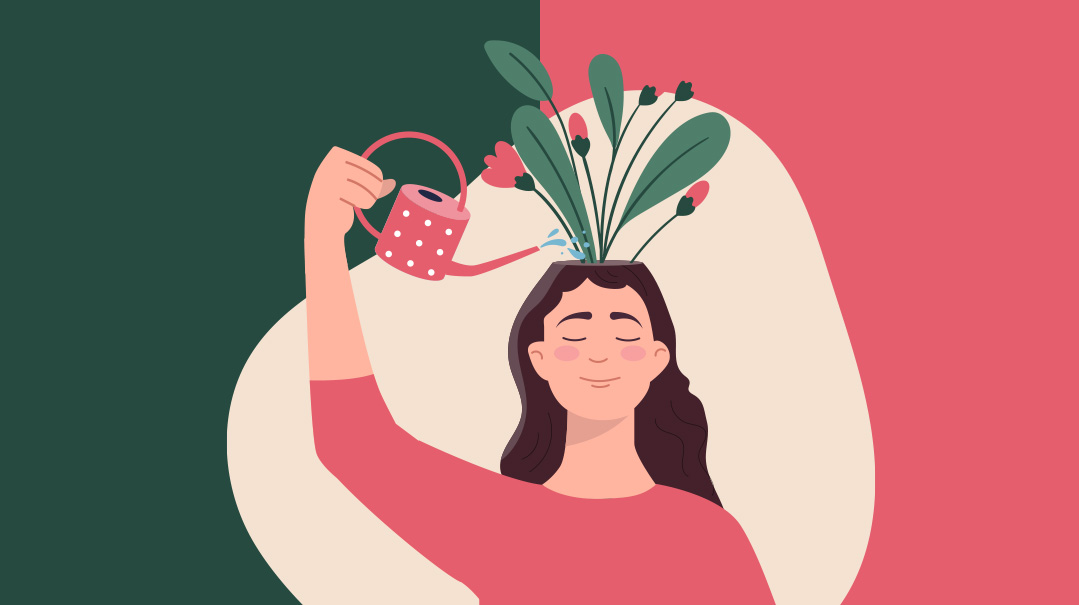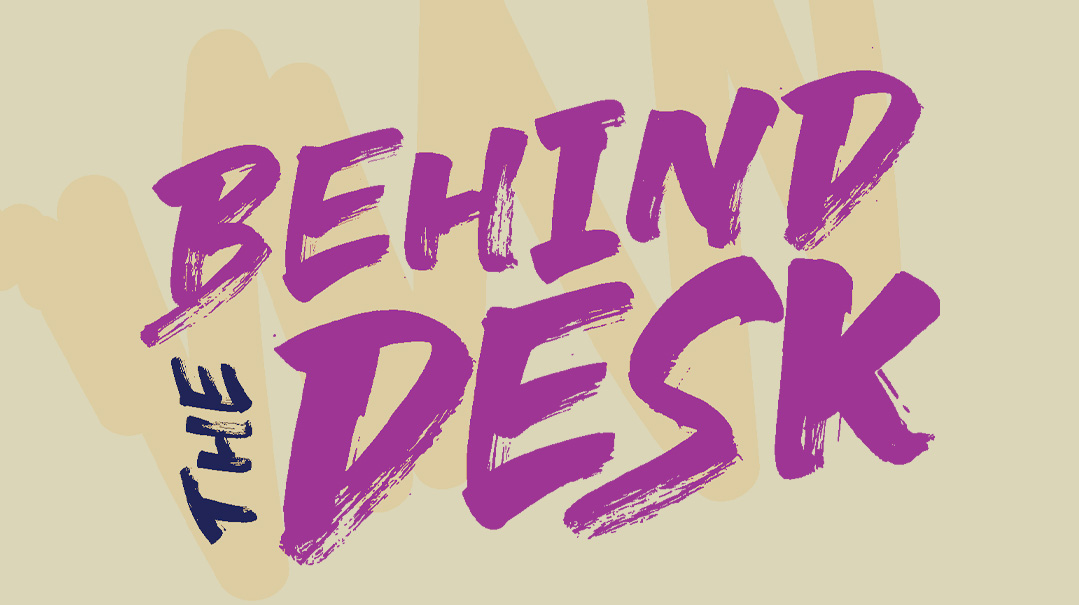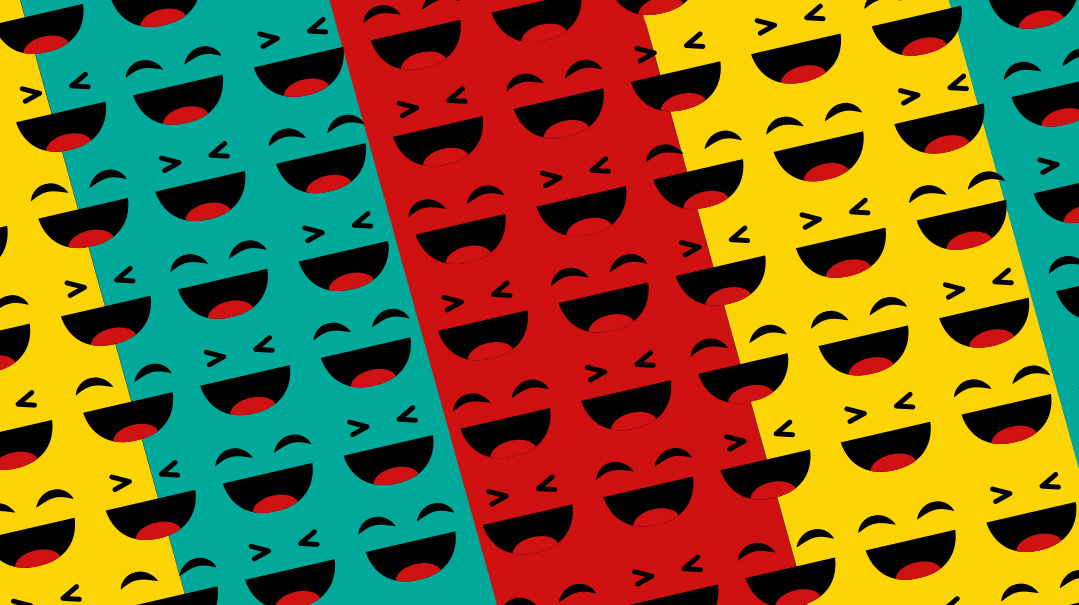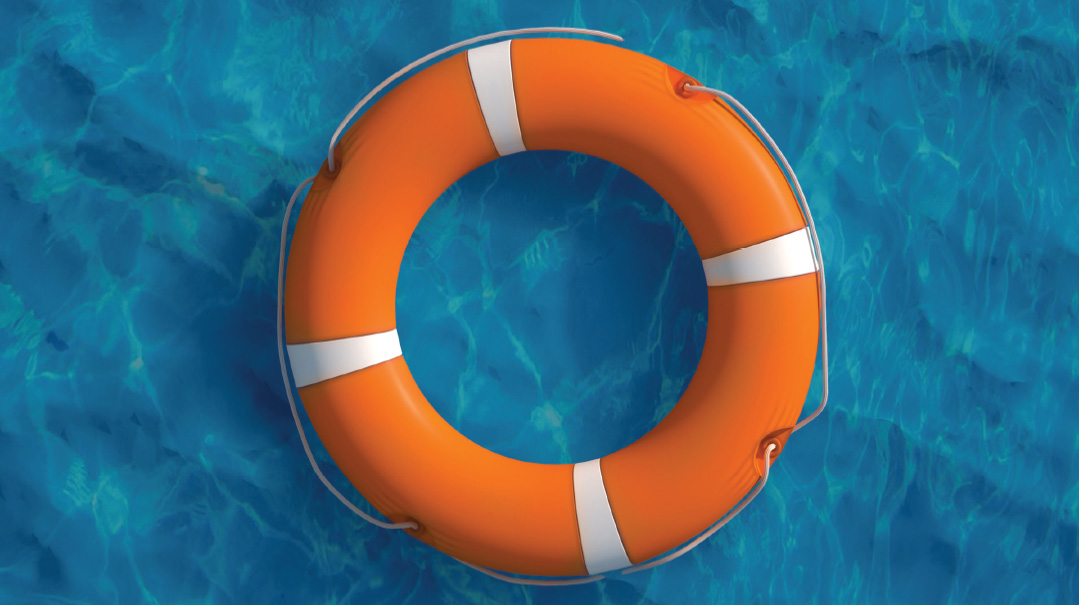Give and Take: 5 True Accounts

Without realizing it, you’ve probably gotten a taste of what giving does for you
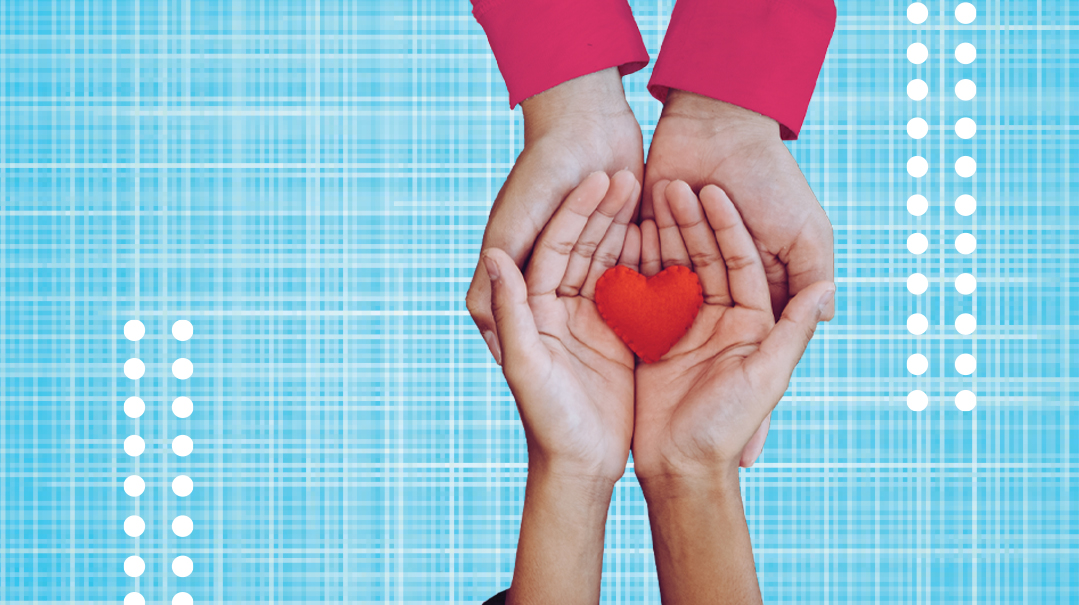
Activate Your Giving Power
Mrs. Chani Juravel
A number of years ago, a study was done on elderly people living alone. All of them were struggling with depression. Half of them were given medication and therapy, and the other half were given a pet (either a dog or cat). After a number of months, they found that the people with pets were doing a lot better than the others who were going to therapy and taking medication. The reason, the study concluded, was that the pet owners had opportunities to give to another. They were walking, feeding, and caring for their pets. They were responsible for another living creature. And feeling needed as a giver makes people feel a lot better about life and their role in it.
After the Dor Hamabul proved unworthy of living, Hashem started fresh with Noach and his family. Interestingly, one of Noach’s primary tasks was to be a sort of zookeeper, caring for all of the animals on the teivah. We are taught that Hashem wanted to ensure that the world would be an olam chesed, so He created a scenario for selfless giving to be Noach’s beginning. Being baalei chesed is our greatest privilege, and creating a world that revolves around chesed is Hashem’s greatest plan. Of all the strengths of our Avos, our strongest connection and merit is the magen Avraham, the shield of Avraham’s chesed.
Without realizing it, you’ve probably gotten a taste of what giving does for you. Think of the last time you felt down. You might have felt useless or wrong, sort of invisible in some ways, unimportant and unworthy. At those times, it’s hard to believe you’re all that important or needed. The world seems just fine without you. But then a friend reaches out to ask your opinion on something, or a sibling cries out for your help, or a neighbor tells you that you always know how to make her little handicapped son smile… and you feel that much more hopeful about life. It’s because you remember that you’re a giver, and that’s such a powerful, positive feeling.
When we give, Rav Dessler says, it’s a way of emulating Hashem, Who is the ultimate Giver. And whenever we connect to Him, we feel more alive, because He is the source of life. Activating your giving power is activating your truest self. Even just remembering times that you were needed and gave is enough to boost your mood. You may not think you do much for the world until you realize just how many people would be missing what you do for them and what you are for them — even if what you give them is no more than your smile.
One last benefit: We all want to have better friendships and strong relationships, to love and be loved more. The root of ahavah is hav, to give. The way to love others is by giving to them. It’s how we build better feelings and connections. And when you receive from others, you’re giving, too — you give them the chance to give to you!
Purim is a time we shifted from our lowest point to our most impressive. Giving more of ourselves can do the same, on Purim and beyond.
To the Rescue
Sara Kirsch
I sat next to Esti* on the bus to camp, and we hit it off right away. We were in the same bunk and managed to grab adjacent top bunks. We shared nosh and banter over our bunkmates’ heads, took endless selfies, and shared such a similar taste in clothing that we had a few nearly identical outfits!
At first, I enjoyed the way Esti showered me with compliments, even though she would make disparaging remarks about herself at the same time: “Wow, Sara, you’re good at everything!” she’d exclaim, when I led our bunk to a basketball victory. “Not like me…” she’d add. Or another time, “Ugh, Sara, I look so fat in this, you look good in everything…”
I would laugh. Esti was super musical, had a great sense of humor, and exuded confidence. She was just kidding around.
But after a few days, I realized something was really wrong. Esti started dropping hints about how hard her life was. She never called home. Sometimes she’d slip away from the rest of the bunk, and reappear a while later, eyes red.
I remember the night she opened up to me. We had a trip off-grounds, and for some reason, the busses were over their maximum capacity, so a few of us had to go in the staff minivan instead. Esti and I quickly volunteered, glad for the opportunity to spend time talking privately.
And that was when Esti told me. About her dark thoughts and the therapist she’d seen for a year who hadn’t managed to help. About her family difficulties and self-hatred. I listened with wide eyes and promised her I would help.
I really did try. I was there whenever she wanted to talk. I skipped activities (and got into trouble) when Esti insisted she “needed” me, and stayed up through the night more than once, listening and giving what I thought was valuable advice.
But as the summer continued, Esti started pulling away. Maybe she was uncomfortable with our relationship, how I was always in the giving position while she was the taker. Maybe she was embarrassed how much she’d shared. Maybe the advice of a young, inexperienced friend wasn’t actually helping.
And then Esti simply stopped speaking to me. It was as if our friendship had never existed. I was deeply hurt — what about everything I’d done for her? — but at the same time felt sorry for her. I, more than anyone, knew about her difficult life… and somehow, I’d been the cause of even more problems.
In hindsight, I realize I shouldn’t have tried to solve Esti’s problems myself; they were too big for me. I should’ve supported her by continuing to be a fun friend, and by encouraging her to talk to an adult, maybe the camp mother. Instead, I took it all on my shoulders, and I ended up making things worse for Esti, instead of better.
I could never have been her therapist. But I could have been her friend.
Malkie’s House
Avigayil Bloom
The summer after ninth grade, my mother brought my siblings and I on an unforgettable trip to Eretz Yisrael. The problem was that for the remainder of the summer, I was pretty much a free bird with nothing to do.
My cousin Malkie in Lakewood was the proud mommy of a gorgeous new baby girl — plus three older siblings. She was looking for a mother’s helper. I was looking for something to do. My grandmother made the shidduch, and before I knew it, I was off to Malkie’s house for a week.
It was one of the best summer experiences I can remember. Being the almost-youngest in my family, I didn’t have much experience with little kids. I had no nieces or nephews yet. I still remember waking up in the morning to the adorable sound of little kids stampeding above my head, chanting something together. They were so much fun, and Malkie might not have believed me if I told her this, but seeing how she dealt with her kids was a real inspiration and an invaluable eye-opener to me.
On Erev Shabbos, I got to make Shabbos food in Malkie’s kitchen. Her husband gave me his secret cholent recipe. She gave me her apple kugel recipe. Yum and double yum! I went home with the kugel recipe and made it a few times after that. Seeing myself as someone who could successfully make almost an entire Shabbos was really cool — I loved sitting down to that late-night summer Shabbos seudah with Malkie, her husband, and the adorable newborn (older kids were already sleeping), and watching them enjoy food that I had made. Such a great feeling.
The truth is that living in a different city than my cousins always made it hard to really personally connect with them. This was a precious chance to get close with a fellow granddaughter of my grandmother’s. I’m sure that’s one thing Bubby had in mind when she paired us up.
By the time I left, I had gained so much more than I had given. Malkie asked my mother what to give me as a gift for what I’d done for her. But I couldn’t even imagine taking something, let alone choosing what it should be! She and her husband ended up choosing a beautiful watch for me — I still remember its blue-tone sparkle and the gems that surrounded its face. But really, being able to be there for my cousin and learning so much from being with her family was the most precious gem of all.
Crash Course
Chaya Rosen
When my baby brother was born with Down syndrome, I was thrust into two new and vastly different roles. One the one hand, I had to become a giver like never before; my new brother was born early and was in the hospital, and as the oldest, much of my mother’s responsibilities fell on me. I woke up early to help all my younger siblings get up, dressed, fed, and ready for school; dropped the little ones off at their respective playgroups; ran to my own school; took care of them in the afternoon and evening; fed them lunch and supper; stayed on top of the laundry, and even shopped for groceries. It was tremendously overwhelming for a tenth grader in the midst of midterms and I was giving, giving, giving nonstop. But it’s good to be a giver: I was strong, generous, helpful, and supportive to my sibs and to my parents.
Yet I was also in a vulnerable position: I was the sister of a very tiny, very precious little baby with a very big label stuck to him. And the sensitive people surrounding my family recognized that. During those weeks, I was forced to perfect the art of giving. But I also had to learn to swallow hard, and perfect the art of gracefully receiving. Receiving warm, homemade meals from the community, balloons and love from my mother’s friend, allowances on some of my midterms, and even an unexpected and badly needed drive to the hospital to visit my mother and get a glimpse at the new baby. I had called my mother’s friend, miserable and a bit frantic, the day after my brother’s birth. This busy mother of many had dropped everything she was doing, got in the car, picked me up and drove me to the hospital. She walked me to the ward where my mother was and discreetly disappeared until I was ready to leave. That kind of taking is big and it’s humbling, and I will never forget the kindness that she showed me that day, nor the kindness, help, and support that our community showered on my whole family after my brother was born.
I guess that in addition to the many beautiful lessons I have learned from my little brother over the years, I can also say he gave me a crash course in the art of giving and taking. Thank you, baby brother.
Unexpected Giving
Chavi Brody
When I was a kid I thought givers were multi-millionaires who built mosdos, askanim with loads of connections who got you accepted to that coveted school, or the superwoman mother who managed to bake a three-layer frosted cake or potato kugel for every simchah.
The person least likely to be a giver, to my mind, was a blind person. They can’t see, so how could they possibly do for others?
Well, during my sem year I visited Mazal Levi, a blind lady, weekly. When I first saw the sign on the bulletin board, I didn’t think it was for me: We need visitors for a lonely, blind woman. However, a niggling voice inside me said, Come on, try to do something difficult.
Imagine my surprise when I walked in Mazal’s room and discovered her sitting and knitting a sweater! Throughout the year, she managed to produce adorable vests, baby blankets, and booties. I couldn’t even do three stitches, using full sight!
That was just the beginning.
One of her favorite pastimes was for me to read to her from Tanach. No problem. I opened up and began from where she wanted. After several minutes, Mazal corrected a mistake I had made. And she was right!
Her blindness (which evolved from diabetes), didn’t mar her ability to socialize. Mazal inquired about each and every one of my siblings as if they were her own family. This actually eased some of my homesickness. In fact, at the end of the year, Mazal presented me with a gray and pink vest for my younger sister.
She was a fountain of clever advice. Those gems served me well in future situations.
As my sem year drew to a close, I knew I had gained tons of knowledge over the year. Yet one of the most powerful lessons I learned was that people with limitations can still be givers.
How I See You
Dassi Katz
Do you have a job helping a local family after school?
You do? Wow! The chesed you do is unbelievable!
But it’s a just job, you say. A way to earn a little extra money.
I disagree with you, and here’s why.
I teach in a local school, and freelance from home too, leaving me precious little time for household work. With five young children, by evening my house is often an incredibly disorganized mess. Clics and Lego all over, bottles piling up in the sink, dirty pots and bowls lining the counters.
Baruch Hashem, we’re happy and the kids have what to eat and wear, but keeping everything clean, organized, and tidy is a constant struggle.
Enter my high school helper.
Sara comes twice a week, every Monday and Thursday. Always friendly and smiling. She comes on time, and on the odd occasion that she can’t come, she lets me know in advance. She washes the bottles and pots and bowls and dishes, she tidies up the Lego and Clics and Magnatiles, and sweeps the floor. By the time she leaves, my kitchen and playroom have undergone a radical change. From messy to tidy, from dirty to clean.
She works magic.
On Mondays and Thursdays, I can feel a little more relaxed, go to bed a little earlier — there is so much less that I need to do.
She never complains that it’s too messy; she reassures me that “It’s really not that bad.”
And when she’s done, although she has worked hard, and surely has plenty of schoolwork awaiting her at home, she asks with a smile, “Is there anything else you’d like me to do?”
I pay her, yet that is not her focus.
She is friendly and responsible, efficient and happy to help. She gives without making me feel like a taker.
So you see, you’re not just “working” — you’re doing a tremendous chesed, especially if you’re as pleasant and reliable as my helper is.
You’re a wonderful, special girl, helping a busy mother build her Mikdash Me’at.
That’s how I see you.
(Originally featured in Teen Pages, Issue 850)
Oops! We could not locate your form.

